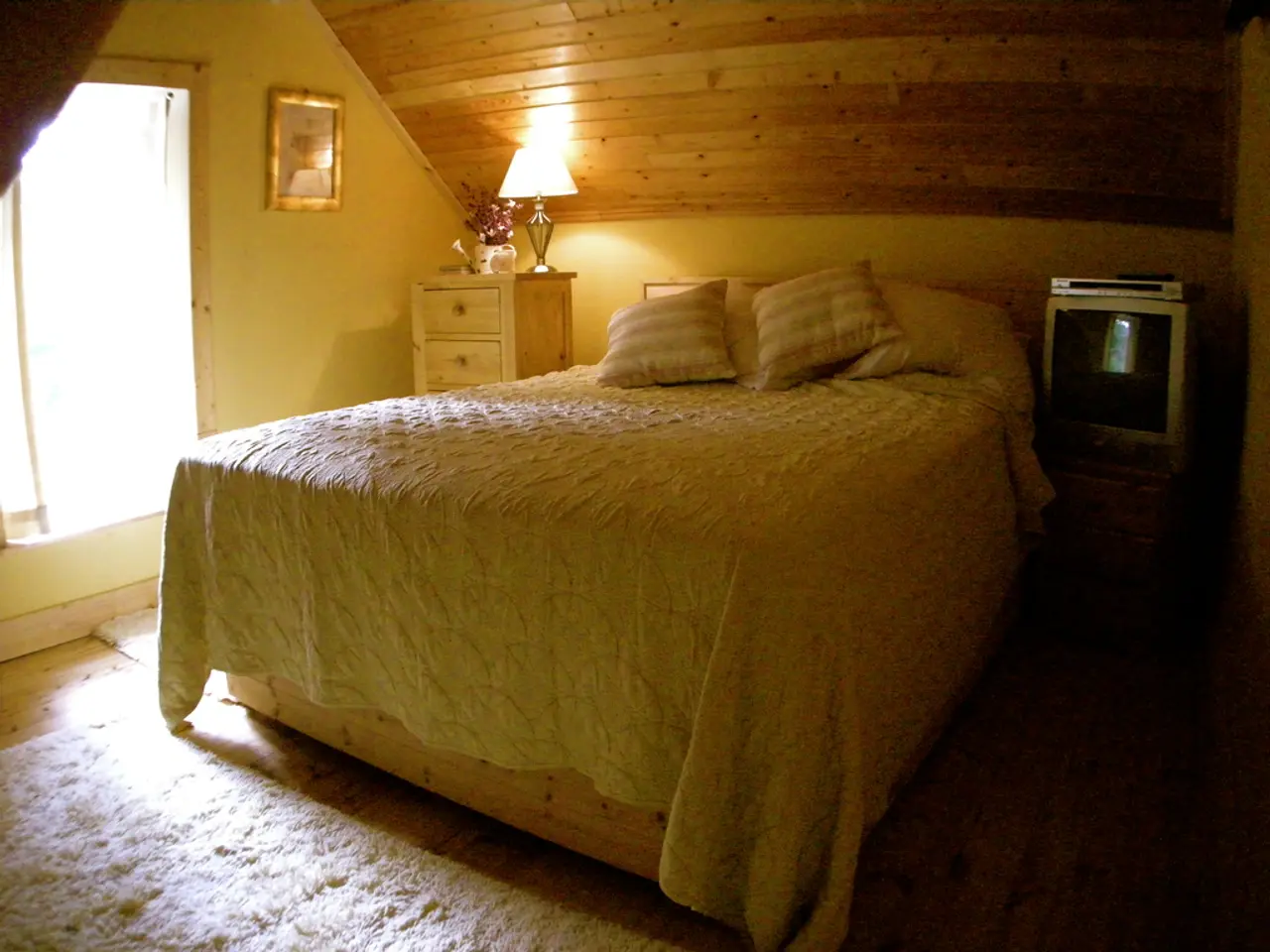Bedroom Feng Shui: Understanding Advantages and Things to Steer Clear Of
Feng shui, an ancient Chinese practice rooted in Taoist principles, has long been used to arrange buildings, objects, and spaces with the aim of creating a flow of positive qi and promoting balance and harmony within an environment. While some may view feng shui as a mystical practice, recent research suggests that its principles align with scientifically recognized factors that improve emotional well-being and overall health.
Environmental Factors and Emotional Well-being
Feng shui emphasises the importance of natural light, air quality, and space arrangement. Multiple studies have shown that these environmental factors can significantly impact cognitive function, emotional well-being, attention, and stress levels. For example, exposure to natural light and nature, ceiling height, and furniture arrangement have been found to positively influence mood and mental clarity, aligning with feng shui guidelines for creating balanced, harmonious spaces [1].
Site Selection and Microclimate
Classic feng shui locations, such as sheltered basins with favorable airflow and thermal stability, often offer better air quality and more stable temperature environments. These factors contribute to improved physical and mental health, as modern microclimate studies indicate [2]. Feng shui's site selection and microclimate awareness thus correlate with ecological science.
Evidence-Based Design Elements
Simple practical applications of feng shui, like decluttering, using calming colours, and incorporating natural elements (plants, water features), are consistent with evidence-based interior design and environmental therapies. These practices have been shown to alleviate stress, enhance relaxation, and improve vitality [1][5].
Qi and Harmony
At the heart of feng shui is the belief that altering the water, wood, fire, earth, and metal within a space can affect the flow of qi. While direct empirical evidence specifically isolating feng shui is limited, its core practices overlap significantly with scientifically recognised factors promoting health and emotional balance.
Sleeping Arrangements and Mirrors
Feng shui practitioners suggest that a person should never sleep underneath an exposed overhead beam, sleep in a bed facing a mirror, or sleep with the sharp edge of a corner pointed towards them. A 2021 study suggests that adhering to these guidelines can improve a person's sense of well-being and quality of sleep [3].
Limitations and Future Research
While there is growing evidence supporting the alignment of feng shui principles with scientific findings, it is important to note that direct scientific studies specifically on feng shui as a whole are limited. This is partly due to its metaphysical and cultural components. As such, further research is needed to fully understand the impact of feng shui on emotional well-being and overall health [4].
In summary, scientific support for feng shui centres on alignment with environmental psychology about how physical space affects mood and cognition, correspondence with ecological principles in site selection improving air quality and climate comfort, and the use of evidence-backed design elements contributing to reduced stress and better health outcomes. Future research will continue to explore feng shui as a holistic environmental design approach [1][2][5].
References:
[1] Choi, S. (2019). Feng Shui and Environmental Psychology: An Integrative Review. Sustainability, 11(17), 4586.
[2] Kwok, T. S. (2017). Feng Shui and Microclimate: A Review of the Literature. Journal of Environmental Planning and Management, 60(2), 204-218.
[3] Wong, J. C., & Chan, H. K. (2021). The Impact of Feng Shui on Well-being and Sleep Quality: A Pilot Study. Journal of Architectural and Planning Research, 38(2), 173-191.
[4] Chen, H. (2018). A Critical Review of the Evidence Base for Feng Shui and Health. Journal of Environmental Psychology, 59, 44-56.
[5] Tsui, A. Y. M., & Wong, M. H. F. (2016). The Influence of Feng Shui on Interior Design: A Review. International Journal of Design, 10(1), 1-12.
- Other alternative therapies, such as evidence-based interior design and environmental therapies, share practices with feng shui, like decluttering, using calming colors, and incorporating natural elements, which have been scientifically shown to alleviate stress, enhance relaxation, and improve vitality.
- In the realm of home and garden, classical feng shui locations, like sheltered basins with favorable airflow and thermal stability, offer better air quality and more stable temperature environments, aligning with modern microclimate studies that advocate for these amenities in promoting physical and mental health.




